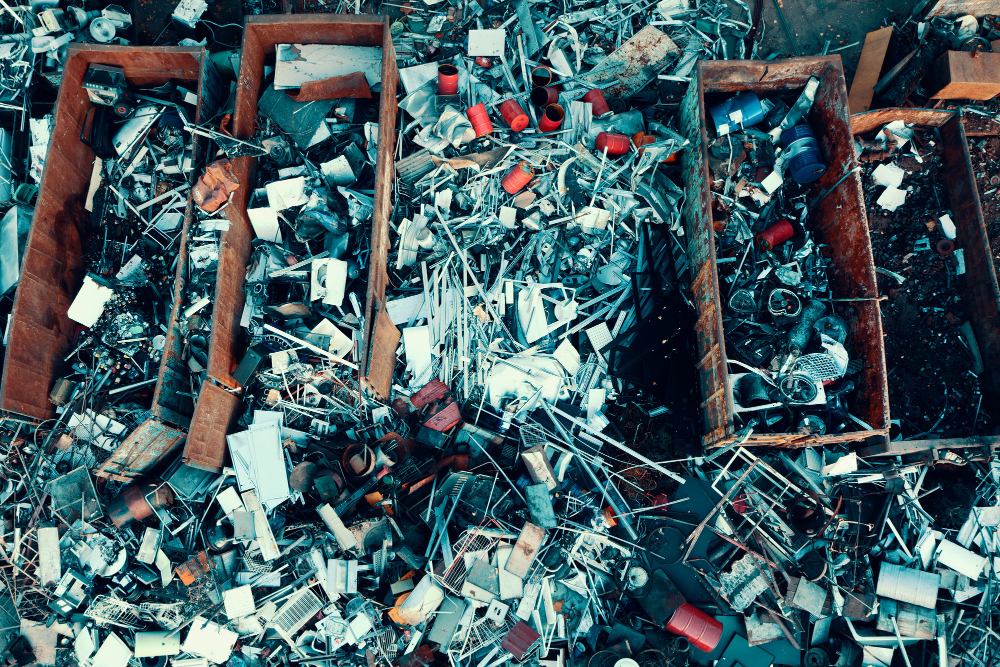

JAN 25, 2024
Scrap metal recycling plays an integral role in maintaining sustainability and environmental awareness today, contributing to conserving natural resources while decreasing greenhouse gas emissions - essential practices in any sustainable future. RCM Recycling examines some industries where scrap metal recycling has become a daily practice!
The construction industry is one of the primary consumers of metals. This sector heavily relies upon scrap metal recycling for materials like steel and aluminum used for building frameworks, roofing systems, and interior fixtures.
The automotive industry is another leading force in scrap metal recycling. Vehicles nearing their end-of-lifecycle are sold to scrap metal recycling firms for dismantlement and metals recycling; this ensures valuable metals like steel, aluminum, and copper can be reused to produce new cars while conserving resources and mitigating the environmental impact associated with mining operations and metal production.
In today's technology-driven world, electronics industries are experiencing exponential growth. With such rapid expansion comes an increased need for precious and rare metals used to construct electronic devices - these precious and rare metals being recovered through scrap metal recycling from old electronic devices - providing steady supplies while mitigating environmental impacts caused by mining new metals.
The manufacturing industry encompasses an expansive variety of products that incorporate metal components. A reliable scrap metal company plays an essential part in this sector by guaranteeing access to top-grade recycled metals; providing manufacturers with access to recycled scrap at reduced rates is equally important in maintaining an eco-friendly production cycle.
With increased emphasis on renewable energy sources and metal recycling as part of sustainable practices, the energy sector has become an expansive metal user. Wind turbines, solar panels, and other renewable technologies require large amounts of metal. Recycling scrap metal for this industry's needs while decreasing environmental degradation caused by natural resource exploitation and depletion.
Construction projects such as bridges, roads, and public transport networks use large amounts of metal that must be obtained sustainably and cost-effectively from scrap metal recycling sources. By purchasing materials through scrap metal buyers instead of mining operations directly for raw material sources, infrastructure developers can reduce environmental conservation and sustainability while benefitting economically from using recycled scrap.
The aerospace industry includes aircraft and spacecraft production. As it requires high-grade metals for their strength and durability, scrap recycling offers an appealing option in meeting those specifications at reduced environmental cost compared to new materials. This industry benefits immensely from recycled metal recycling solutions for use within their components, which provide these essential qualities while simultaneously cutting environmental costs associated with new material use.
Shipbuilding requires large amounts of steel and other metals that cannot be easily obtained elsewhere, necessitating recycling as the material supply source. By recycling scrap metal, shipbuilders gain access to essential resources while simultaneously helping minimize environmental harm associated with mining operations and metal extraction processes.
Scrap metal recycling has long been recognized for its benefits to various industries, providing an eco-friendly means to meet high metal consumption while conserving our planet's precious natural resources. Working closely with scrap metal buyers and RCM Recycling allows industries to ensure consistent supplies of high-quality recycled metals while contributing to global efforts for ecological footprint reduction. As we move toward more eco-friendly living, recycling scrap metal will play an integral part in industry expansion while conserving Earth's precious resources.